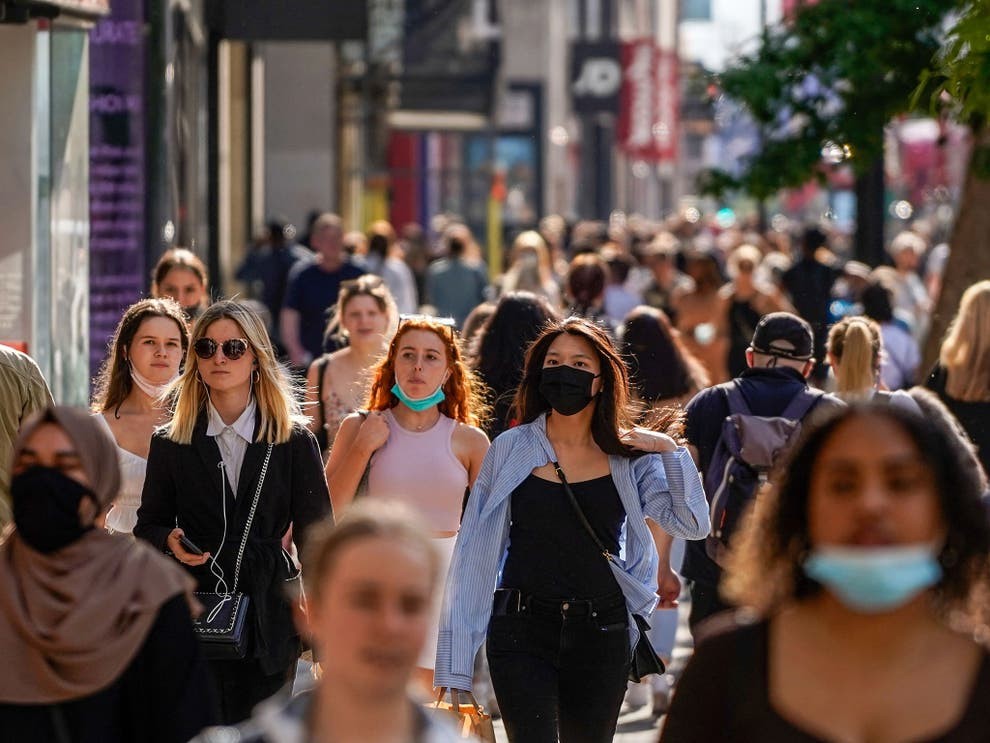
Healthline: Why the UK saw a big drop in COVID-19 cases as the US has a surge
UC infectious disease expert says the level of vaccination and natural immunity are factors
The latest COVID-19 surge in the United Kingdom, fueled by the highly contagious Delta variant, is already dwindling, Healthline reports. In late July, the U.K. saw around 43,000 new infections on a daily basis. Now, that number has been halved, despite the easing of lockdowns and restrictions.
Infectious disease specialists suspect a number of factors are contributing to the rapid drop in cases, including the United Kingdom’s high vaccination rate, the fact that schools are out for the summer, and the warmer, more humid climate.
The lead source cited by Healthline for this story was Carl Fichtenbaum, MD, of the Division of Infectious Diseases in the Department of Internal Medicine at the UC College of Medicine. Fichtenbaum says the United Kingdom’s most recent wave was the fourth wave of infection it has seen since the start of the pandemic.
The first wave, which took place in April 2020, was relatively small, and the U. K. was able to flatten the curve. A larger peak occurred in September 2020, which eventually receded, before an even larger wave unfolded in January 2021 when the highly contagious Alpha variant spread.
“That [third wave] fell dramatically, and they saw the same thing in July — it peaked and it fell dramatically,” Fichtenbaum said.
The Delta variant emerged in the United Kingdom in late April 2021 and was the dominant strain by May. This latest surge peaked on July 21 and now cases are free falling. What’s encouraging about the U.K.’s latest wave, according to Fichtenbaum, is that while cases have soared, the number of people who have been hospitalized or admitted to the intensive care unit has been a fraction of what it was during the previous waves.

Carl Fichtenbaum, MD, of the Division of Infectious Diseases at the UC College of Medicine/Photo/Colleen Kelley/UC Creative + Brand
“That’s really reassuring that the level of vaccination and natural immunity is probably helping for people to be less sick during this particular wave of the Delta virus infections,” Fichtenbaum said.
The decline in COVID-19 cases in the U.K. leads to the question of whether a similar drop will be seen in the United States. Fichtenbaum told Healthline he's not optimistic about that.
“What worries me is we don’t have our vaccination rate up to 70 to 73 percent in every state like they do in the U.K.,” Fichtenbaum said.
In a few weeks, U.S. children are going back to school. With the Delta variant increasing, and without enough vaccinations or mitigation measures in places, Fichtenbaum expects we’ll see more hospitalizations in areas with low immunity levels.
Lead photo/Niklas Halle'n/AFP/Getty Images
Next Lives Here
The University of Cincinnati is classified as a Research 1 institution by the Carnegie Commission and is ranked in the National Science Foundation's Top-35 public research universities. UC's medical, graduate and undergraduate students and faculty investigate problems and innovate solutions with real-world impact. Next Lives Here.
Related Stories
Local 12: Head injury survivor, doctor share importance of...
April 23, 2024
Local 12 spoke with patient Shane Shapiro and the University of Cincinnati's Laura Ngwenya about the importance of wearing a helmet following Shapiro's traumatic brain injury and recovery.
WVXU: Why is part of Green Township called Dent?
April 23, 2024
UC College of Arts and Sciences professor tells WVXU that Ohio's glacial past might explain how Dent got its name.
WVXU: Find your CPAP annoying? UC researchers are working on a...
April 22, 2024
Dr. Liran Oren is leading a research team at the University of Cincinnati developing a VortexPAP machine that takes advantage of vortex airflow technology. A preliminary clinical study with current CPAP users demonstrated that the VortexPAP can deliver the pressure levels that are used in the subjects’ CPAP therapy, but the mask is more comfortable to wear. It has a minimalistic design that is less intrusive and barely touches the patient’s face.
